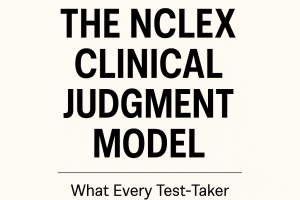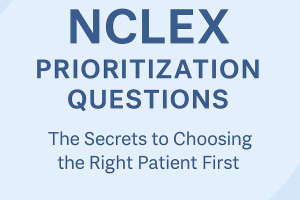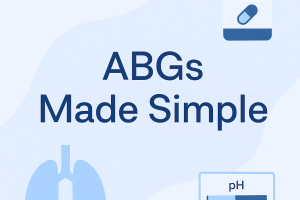Mastering Diabetes Mellitus (Type 1 and Type 2) for the NCLEX Exam

Diabetes Mellitus is a crucial topic for the NCLEX exam, as it is a prevalent chronic condition that requires comprehensive nursing care. Understanding the pathophysiology, symptoms, diagnosis, and management of both Type 1 and Type 2 diabetes is essential for aspiring nurses. This blog post provides a detailed guide to help you prepare effectively for the NCLEX exam.
What is Diabetes Mellitus?
Diabetes Mellitus is a metabolic disorder characterized by high blood glucose levels due to either insufficient insulin production (Type 1) or insulin resistance (Type 2). Proper management is vital to prevent complications and maintain quality of life.
Type 1 Diabetes Mellitus
Pathophysiology
Type 1 Diabetes Mellitus is an autoimmune disorder where the immune system attacks and destroys the insulin-producing beta cells in the pancreas. This leads to little or no insulin production, causing hyperglycemia.
Symptoms
- Polyuria: Frequent urination
- Polydipsia: Excessive thirst
- Polyphagia: Increased hunger
- Unintended weight loss
- Fatigue and weakness
- Blurred vision
Risk Factors
- Genetic predisposition
- Family history of Type 1 diabetes
- Certain viral infections
Diagnosis
- Fasting blood glucose test: Levels ≥ 126 mg/dL
- Hemoglobin A1c test: Levels ≥ 6.5%
- Random blood glucose test: Levels ≥ 200 mg/dL with symptoms
- Autoantibody tests: To identify autoimmune markers
Management
- Insulin therapy: Multiple daily injections or insulin pump
- Blood glucose monitoring: Regular checks to manage levels
- Dietary management: Balanced diet with carbohydrate counting
- Physical activity: Regular exercise to maintain blood glucose levels
- Education and support: Patient education on managing diabetes and preventing complications
Type 2 Diabetes Mellitus
Pathophysiology
Type 2 Diabetes Mellitus is characterized by insulin resistance, where the body’s cells do not respond effectively to insulin. This leads to increased insulin production initially, but eventually, the pancreas cannot keep up, resulting in hyperglycemia.
Symptoms
- Polyuria
- Polydipsia
- Polyphagia
- Fatigue
- Blurred vision
- Slow-healing sores
- Frequent infections
Risk Factors
- Obesity and overweight
- Physical inactivity
- Family history of Type 2 diabetes
- Age (45 years and older)
- Ethnicity (higher risk in African American, Hispanic, Native American, and Asian populations)
- Gestational diabetes history
Diagnosis
- Fasting blood glucose test: Levels ≥ 126 mg/dL
- Hemoglobin A1c test: Levels ≥ 6.5%
- Oral glucose tolerance test (OGTT): Levels ≥ 200 mg/dL after 2 hours
- Random blood glucose test: Levels ≥ 200 mg/dL with symptoms
Management
- Medications: Metformin, sulfonylureas, GLP-1 receptor agonists, DPP-4 inhibitors, SGLT2 inhibitors, and insulin
- Dietary management: Balanced diet, portion control, and carbohydrate counting
- Physical activity: Regular exercise to improve insulin sensitivity
- Weight management: Achieving and maintaining a healthy weight
- Blood glucose monitoring: Regular checks to manage levels
- Education and support: Patient education on managing diabetes and preventing complications
Complications of Diabetes Mellitus
- Cardiovascular disease: Increased risk of heart attack and stroke
- Neuropathy: Nerve damage leading to pain, tingling, and loss of sensation
- Nephropathy: Kidney damage that can lead to kidney failure
- Retinopathy: Eye damage that can cause blindness
- Foot problems: Increased risk of infections and ulcers, potentially leading to amputations
NCLEX Preparation Tips for Diabetes Mellitus
- Understand the Differences: Be clear about the differences between Type 1 and Type 2 diabetes, including their pathophysiology, symptoms, and management.
- Memorize Key Symptoms: Recognize the common symptoms of both types of diabetes and how they present in patients.
- Diagnostic Tools: Familiarize yourself with the diagnostic criteria for diabetes, including blood glucose tests and the Hemoglobin A1c test.
- Management Strategies: Know the various management strategies for both types of diabetes, including medications, dietary changes, and lifestyle modifications.
- Complications: Be aware of the potential complications associated with diabetes and the interventions required to manage them.
- Practice Questions: Utilize NCLEX practice questions focused on diabetes to reinforce your knowledge and improve your test-taking skills.






